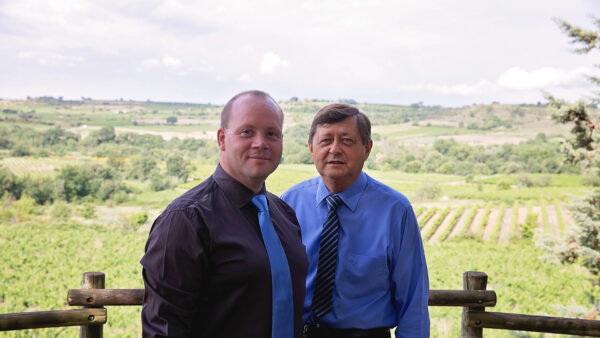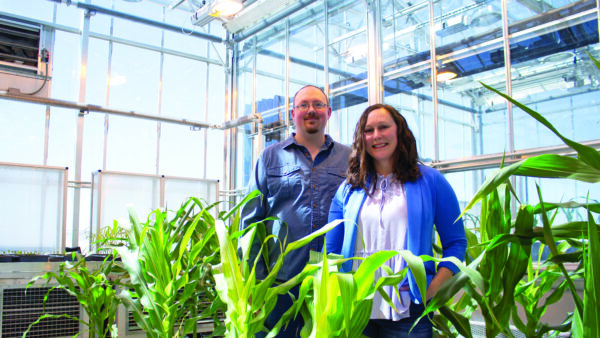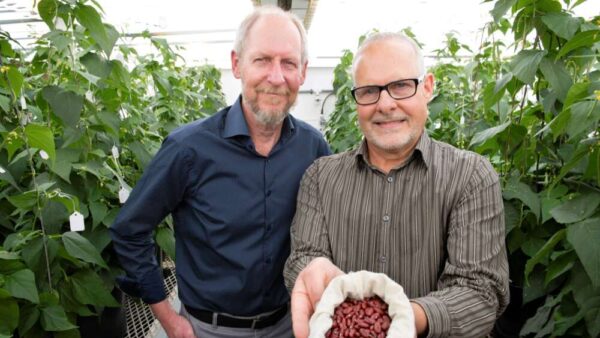Delivering the people, industry, business and product news you need to know. Submissions are welcome. Email us at news@issuesink.com.
Research and Markets has completed a new report titled Global Seed Coating Materials — Trends and Forecasts to 2019. According to the report, the seed coating materials market is projected to reach $1.4 billion by 2019, with a compound annual growth rate of 7.5 percent. There are three major types of seed coating materials — polymers, binders and other additives — used in different quantities and concentrations depending on the type of active agricultural ingredients, according to the authors. The report’s authors write, “The market demand for progressive multifunctional seed technologies to avert the decreasing acreage and to increase seed performance is one of the driving factors of the market.”
A team at the University of Missouri and U.S. Department of Agriculture’s Agricultural Research Service used yield data from more than 400 corn fields to compare soil maps with environmental response unit (ERU) maps developed in collaboration with DuPont Pioneer. ERUs are high-resolution soil mapping units that can be used to develop management zones. “The study found that ERU maps provided better representation of corn yield environments than soil maps did in 80 percent of the fields,” says Brent Myers, a University of Missouri agronomist.
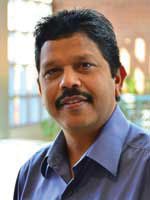
No-till farming might not bring the hoped-for boost in crop yields in much of the world, according to a new meta-analysis by an international team that was led by the University of California, Davis. After examining results from 610 peer-reviewed studies, the study found that no-till often leads to yield declines compared to conventional tillage systems, with the exception of dryland areas. “The big challenge for agriculture is that we need to further increase yields but greatly reduce our environmental impacts,” says Cameron Pittelkow, coauthor of the study. The findings from this review have been published in the journal Nature.
“The big challenge for agriculture is that we need to further increase yields but greatly reduce our environmental impacts.”
– Cameron Pittelkow
A new study conducted by AgInfomatics LLC documents the value of neonicotinoids to agriculture and the significant implications if these products were no longer available. The study evaluated seed treatment, soil and foliar uses of neonicotinoid insecticides in the United States and Canada. Research included crops such as corn, soybeans, wheat, cotton, sorghum and canola, and specialty crops such as citrus, vegetables and grapes, plus turf, ornamental and landscape uses. The results prove that neonicotinoids add billions of dollars to the economy, and benefit entire communities — not just growers. In addition, research shows a loss of neonicotinoids would force growers to rely on a few, older classes of insecticides.
An analysis of the U.S. plant and animal breeding infrastructure and seed supply has been released. The proceedings from the Summit on Seeds and Breeds for 21st Century Agriculture have been published by the Rural Advancement Foundation International, a member of the National Sustainable Agriculture Coalition. The report highlights that RAFI and other stakeholders within the ag research community are concerned about farmers’ limited access to seed, the narrowing of agricultural plant genetic diversity, consolidation within the seed industry, the decline in public cultivar development, and how these trends impact farmers’ ability to meet the challenges of climate change and global food security.
People News
Verdesian Life Sciences LLC expands its sales staff. New account managers will drive sales growth and support customers in the plant nutrition, seed treatment and inoculants product categories. Bob Bischoff, John Henize, Brad Meckle and Mark Seipel join the sales team as regional account managers and will manage all sales and customer accounts in their territories. Randy Kegler joins as a technical sales representative serving as a specialist in the southeast territory.
INCOTEC’s Kyle Rushing has retired. Rushing held various leadership roles within INCOTEC in North America, as well as global research management. Most recently, he served as senior lead for actives and additives. His leadership led to the development of new technologies that provide the most advanced seed treatment additives and actives available today. Rushing served as 2004/05 southern regional vice president for the American Seed Trade Association.
Greenleaf Genetics has hired Henry Olson for the new position of business operations head. He is responsible for maintaining and improving business processes and operations. Olson has been with Syngenta since 2008 and has 12-plus years of experience in brand management and customer business planning.

Arysta LifeScience acquired Goëmar, a French developer of bioperformance technologies. The acquisition adds four members to the U.S. Arysta sales team, including Goëmar national sales manager, Ed Hensley, and territory sales managers, Brian Cigainero, Brett Reeder and Kevin Esau. Goëmar territory sales managers will report to Hensley.
Peter Hofmann of KWS SAAT AG is responsible for the sugar-beet and cereals product segments, and for corporate marketing. This announcement stems from CEO Philip von dem Bussche’s retirement, which is set for the end of December. An employee for 20 years, Hofmann has been managing the operative business of the Sugarbeet Division since 2005.

Syngenta’s John Atkin, chief operating officer, will retire at the end of 2014. He will be succeeded by Jon Parr, who will assume responsibility for Europe, Africa and the Middle East and Latin America. Having worked for Syngenta and its legacy companies since 1987, Parr has broad experience across crop protection and seeds, including commercial and supply chain roles. Most recently, he has served as head of Global Crops and Assets.
Wyffels Hybrids changes its sales and marketing department, which includes adding a vice president of sales and marketing. Brian Humphries has been named eastern business manager, providing leadership to the field sales team east of the Mississippi River. Adam Ploog has been promoted to western business manager for areas west of the Mississippi River. Brent Tharp has been named agronomy and product training manager.

La Crosse Seed adds South Dakota to the territory of Brandon VanMiddendorp, regional sales manager for southwest Minnesota and northwest Iowa. VanMiddendorp’s exceptional level of knowledge in the small grain, cover crop, forage and turf seed markets, coupled with his outstanding service and support, will be a huge asset to customers in South Dakota, says Patrick Reed, La Crosse Seed director of sales.
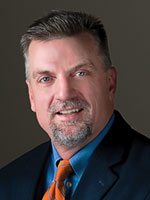
Greg Ruehle, CEO of the Independent Professional Seed Association since 2005, submitted his resignation. He will join the Kansas-based Servi-Tech as president and CEO. Ruehle will serve in his current capacity through IPSA’s 26th Annual Conference, Jan. 6-8, 2015. A national search for a new CEO is underway. Interested individuals should contact IPSA president Lou Buice at lbuice@goldenacres.com or 254-722-4015.
BioConsortia Inc. expands its research and development team to include Graham Hymus, Thomas Williams and Elsebeth Kolmos. Hymus has been appointed to lead BioConsortia’s plant physiology efforts and was most recently principal scientist at Mendel Biotechnology Inc. Williams is a microbiologist and will expand and manage BioConsortia’s microbial culture collection. Kolmos has been hired to fill the position of plant geneticist.
Business News
A team of turf veterans have formed Vista Seed Partners LLC. Based in the heart of Oregon’s Willamette Valley, Vista Seed Partners will supply custom and proprietary turf grass and forage products nationwide. “In our experience, customers are looking for more than access to great product,” says Chris McDowell, partner. “They want a reliable partner who can help them grow their business by providing a high level of customization, expert technical support, and exceptional service and follow-through. That’s our vision for Vista Seed Partners.” Founding partners include Chris McDowell, Marissa McDowell and Mandi Mack.
“In our experience, customers are looking for more than access to great product.”
– Chris McDowell
Bayer CropScience will purchase the seed business of Granar S.A., based in Encarnacion, Paraguay. Granar S.A. specializes in breeding, production and marketing of soybean seeds adapted to the growing conditions in subtropical regions. Granar S.A. products are available in Paraguay, Uruguay and Brazil. The company will continue to market Igra Semillas brand seed in 2014 with Bayer selling the Igra Semillas brand in 2015. The acquisition enables Bayer to enter the soybean seed market in Paraguay for the first time. “Soybeans are a crop with great strategic importance for the region,” says Eduardo Estrada, head of Bayer CropScience Latin America. “This acquisition gives us access to quality germplasm for future variety and trait development.”
Total Seed Production Inc. (TSP) has completed its Indiana plant expansion, which doubles the plant’s capacity. “Our operation continues to expand because of our unique seed production structure, which allows us to be an unmatched leader in quality and service,” says Aaron Conaway, TSP president. “TSP’s key to success is centered on our vertical integration and being able to control every step of the process.”
Eurofins STA Laboratories, will consolidate its Gilroy, California, and Longmont, Colorado, facilities to its Longmont location. The closing of the Gilroy facility will help reduce overhead and strengthen customer service to its global client base. The company is in the process of remodeling the Longmont facility and building additional greenhouses. Management expects no disruption of service to clients that are currently using the Gilroy facility. The move is expected to be complete by Feb. 1, 2015.
As part of its commitment to deliver new solutions for sustainable agriculture, Bayer CropScience has embarked on an investment program that will see capital expenditures of €2.4 billion through to 2016, which includes spending €1.3 billion in Europe with €800 million planned for Germany. Bayer also plans for expenditures of €700 million in North America and €400 million in Latin America and Asia Pacific. The largest individual investments are planned for the Dormagen, Frankfurt and Knapsack sites in Germany, as well as Mobile, Alabama, and Kansas City, Missouri.
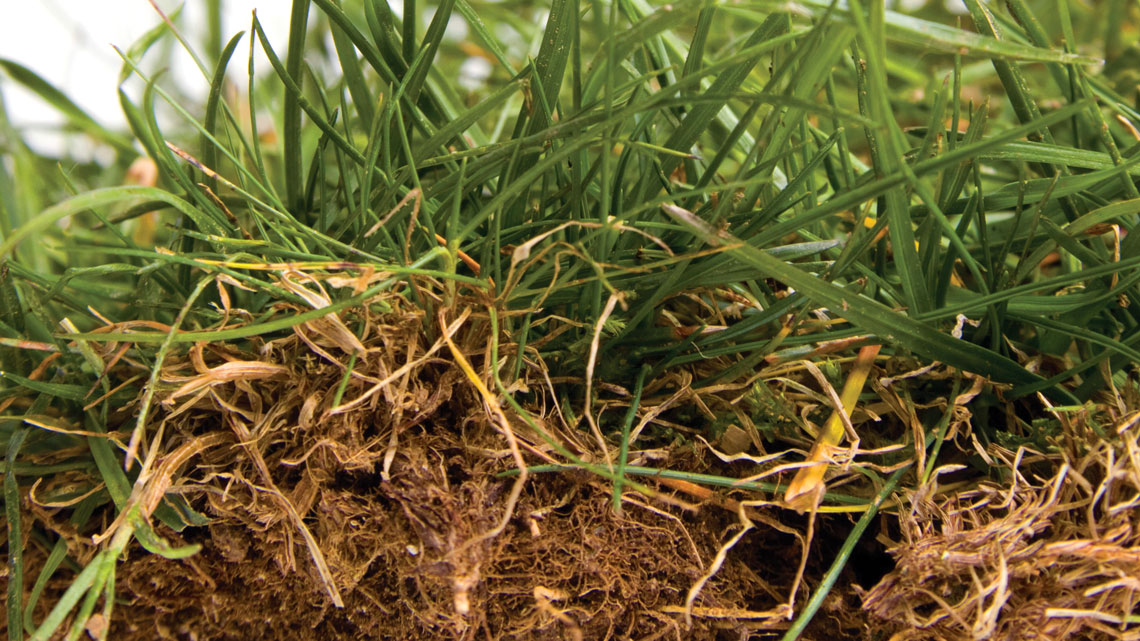
agricultural industries of Brazil,” says Evaldo Fontes, a founder and managing partner of Araujo Fontes. “The joint venture also provides us with greater access to the U.S. market.”
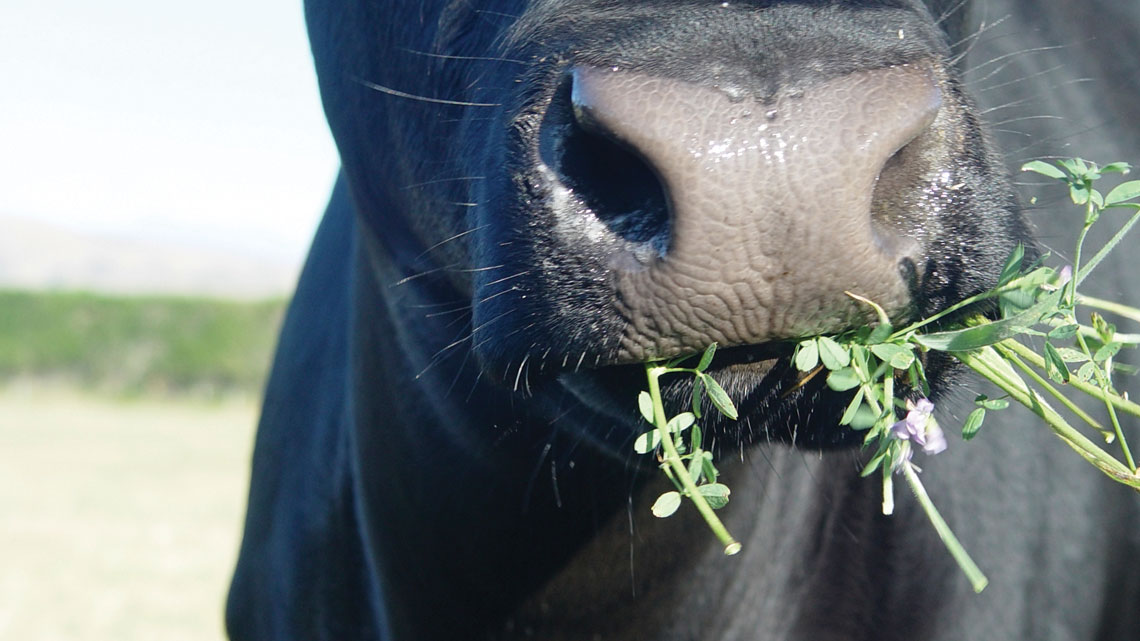
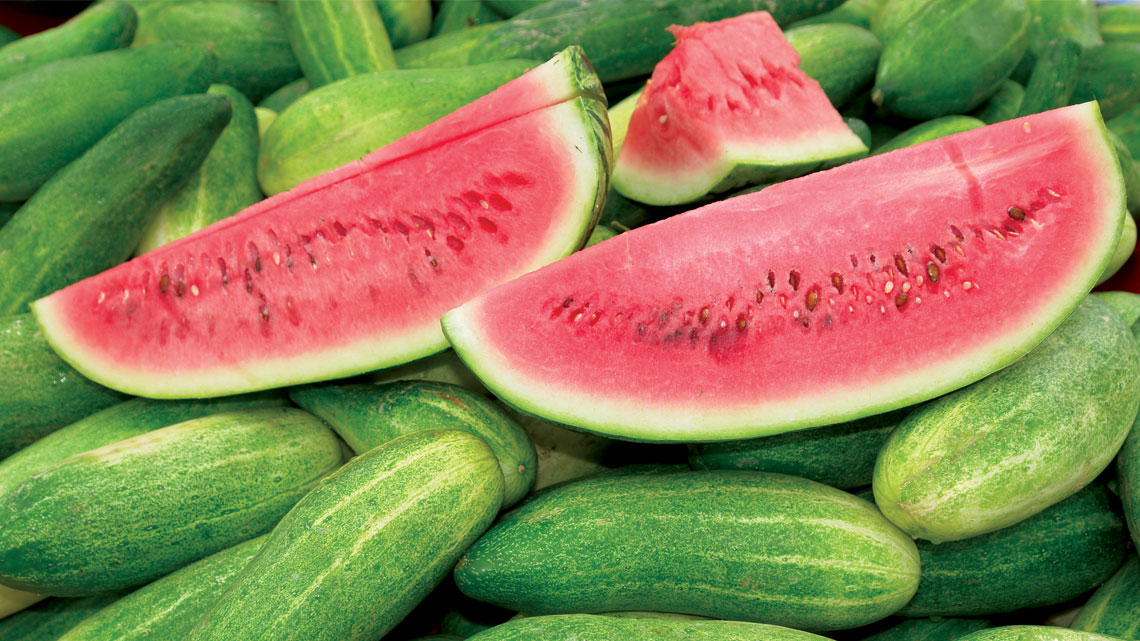
Platform Specialty Products Corporation will acquire Arysta LifeScience Limited. With 3,600 product registrations in more than 100 countries, Arysta offers insecticides, fungicides, herbicides, biostimulants and value-added nutrients. Arysta’s president and CEO, Wayne Hewett, is expected to join Platform’s senior leadership team as president and lead Platform’s three agrochemical businesses in cooperation with management teams from Chemtura AgroSolutions, Agriphar and Arysta. Upon the completion of the Arysta and Chemtura AgroSolutions transactions, along with Agriphar, Platform’s agrochemicals offering will include a comprehensive lineup of traditional and non-traditional crop solutions. The transaction is expected to close in the first quarter of 2015.
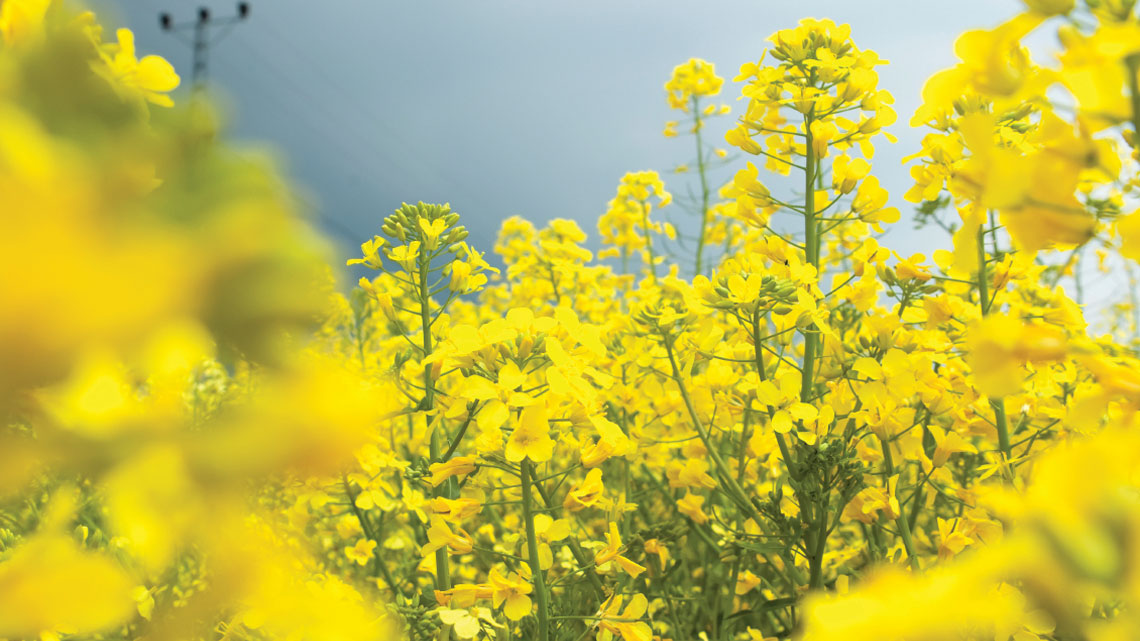
Bayer CropScience and DuPont Crop Protection have agreed that Bayer will purchase certain DuPont Crop Protection land management assets in the United States, Canada, Mexico, Australia and New Zealand. The acquisition enables Bayer’s Environmental Science business unit to offer a comprehensive portfolio of products for effective weed control for industrial vegetation management. Bayer will also gain access to the growing forestry, range and pasture business segments in North America. Under the agreement, DuPont will continue to sell its land management products outside the United States, Canada, Mexico, Australia and New Zealand and its range and pasture products in Mexico and Latin America.
Product News
Advanta US Inc. has added specially-selected Phoenix brand corn hybrids for the 2015 planting season in Arizona, California, Colorado, Kansas, Oklahoma, New Mexico and Texas. For the initial growing season, Advanta will offer 18 Phoenix hybrids selected for the southwest and west. The hybrids are available with a variety of Agrisure traits, including Viptera and Artesian
technology. “This extends our broad grain and forage sorghum portfolio to include corn hybrids for the unique environments of the southwestern and western areas,” says Steve Ligon, Advanta North American business director.
AgReliant Genetics LLC and Spensa Technologies Inc. have signed an agreement that will help growers integrate innovative and precision planting tools with AgReliant hybrid information to improve crop production. “Technology is an important component of the next step toward increasing harvest yields, and we are expanding our services to include more precision technologies,” says Noah Freeman, AgReliant Genetics manager. This agreement allows AgReliant to begin development of its branded precision tool, Advantage Acre, for its Phase 1 launch.
SoDak Labs Inc. has opened its new laboratory in Brookings, South Dakota. During the past several months SoDak constructed its new seed testing laboratory and developed an information management system.
Landmark Services Cooperative partners with Curry Seeds to broaden its seed portfolio, offering growers benefits in plant diversity, insect protection and herbicide resistance. Four new seed trait packages will have different base germplasm than other seed available in southern Wisconsin and northern Illinois, providing more options for reducing risk and increasing yield.
Legacy Seeds has partnered with Quality Seed Genetics of Alice, North Dakota, to market and distribute Legacy Seeds corn and soybean products in western Minnesota, North Dakota, South Dakota and eastern Montana. Quality Seed Genetics will grow and manage the existing and new dealer business in the region. For 2014-15, this territory offers nine new Genuity Roundup Ready 2 Yield soybean varieties.
Where on the Web
RNAcentral, the first unified resource for all types of non-coding RNA data, has been launched by the RNAcentral Consortium. “Fundamental research into non-coding RNAs has many potential applications, including disease diagnostics, new therapies and biotechnology,” says Jackie Hunter, chief executive professor with the United Kingdom’s Biotechnology and Biological Sciences Research Council. RNAcentral aggregates and integrates information, unifying the data landscape and improving the use of data. The initial release of RNAcentral contains about 8 million sequences, offers access to data from 10 different expert databases and provides stable accession numbers.
The new Gro Getter product-search app from Ball Horticultural Company provides the industry with access to thousands of plant details. The app’s take-it-with-you information includes photos, plant information and culture sheets from Ball’s printed and online catalogs. Users can browse by keyword, or filter their plant search by category, color, exposure and more. The Gro Getter app is available free of charge in the App Store and Google Play Store.
A new mapping tool developed by the University of Nebraska, the Wageningen University and Research Center in the Netherlands and other partners could help boost crop production while conserving land and water. The Global Yield Gap Atlas allows farmers, governments and businesses to estimate the gap between potential and actual crop yields based on plant, soil and climate data in a specific area, according to Roberto Lenton, founder and director of the university’s Robert B. Daugherty Water for Food Institute. Creators of the atlas say the technology could help farmers produce enough food to support more than 9 billion people by 2050 while conserving water and other natural resources.
The U.S. Department of Agriculture’s National Agricultural Statistics Service offers the Ag Census Web Maps application, a tool that provides access to Census of Agriculture maps and data about crops and plants, livestock and animals, economics, farms and operators. The Ag Census Web Maps application is interactive. Users can navigate to an area of interest, print the map, display and extract a county’s data, download maps and accompanying data for use with common software programs, and integrate the web map services with other mapping applications to visualize and analyze data in a geospatial context. Information about harvested acreage, agricultural sales, enrollment in crop insurance, natural resources use, and demographics about farmers can be analyzed.








